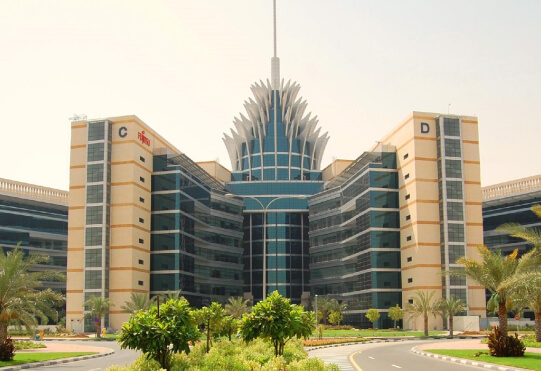Many companies approach us seeking local partners in the UAE or Saudi Arabia. These local partners are not product buyers, but rather companies that will resell products locally or act as local contracting parties. This article will provide insights on why and how foreign companies can establish local partnerships in Saudi Arabia.
Why a Local Partner?
Saudi Arabia is taking decisive steps in 2024 to attract more overseas companies to establish local bases or even regional headquarters in the Kingdom. However, if you’re not a large multinational company with a global brand, this may not be the ideal approach for you.
For small or mid-sized companies just starting in the region, working through a local partner often brings more benefits and less risk than fully committing to establishing your own company.
To qualify for local tenders, large companies and government entities typically require your company to have local experience. Without it, you may not even be considered for competition.
Another reason for having a local partner is the local production priority rule. According to recent regulations, even if you qualify for a tender from overseas, you can only win a contract if your price is at least 25% lower than your closest competitor in the tender. This means you can partner with someone on the ground, share about 10% profit with them, and still earn more than you could by bidding for the project from your overseas legal entity.
The third reason for not establishing your company in Saudi Arabia too soon is the risk factor. Whether or not you secure clients, you’ll still have to pay for licenses, rent, and other operational costs. However, if you already have clients and are working through a local partner, you may reach a point where your cash flow justifies opening a legal entity. The right time to open a company is when it reduces your costs, rather than increasing them. This typically occurs when you already have sufficient business in the market.
Now that you understand why working through a local partner is often the best choice for the Saudi Arabian market, regardless of your B2B segment, let’s explore how to find the best partner for your business and the main pitfalls to avoid.
How to Find One?
First and most important recommendation: Don’t knock on their doors, make them knock on yours.
This may seem counterintuitive at first. You might want to, or may have already, sent direct messages to as many people as possible in your industry, asking if they want to partner with you or represent you on the ground. However, each time you do this, you risk connecting with someone whose interest in promoting your business or helping you is minimal.
Instead, if you create situations where potential partners come to you, you’ll only be talking to people with high interest and motivation. The simplest way to create quick local visibility is by participating in a local trade fair. By taking a booth, you expose yourself to hundreds of people who may offer you their local partnership.
However, there are two issues with this approach: the cost of an exhibition booth can be quite high to start with, and once the exhibition is over, people may start forgetting about you. Therefore, the best advice I give to any company approaching me is to create their local visibility online, through organic content, webinars, paid ads, and other tools that will showcase their expertise to a target group who can become their client or local partner.
Your online presence will put you on a virtual pedestal, from which you can observe everyone and select the best, not necessarily just one partner.
This leads to my second recommendation. Most of your Saudi partners will want to be your exclusive representative to ensure no one else can sell your product or service in the market. Their usual starting point for negotiations is signing an exclusive agreement for 5 or more years, which is sometimes proposed to extend to other countries in the region.
I recall speaking with a Ukrainian entrepreneur who was proud to have signed an exclusive agreement with their new partner in the UAE. They boasted about the partner’s wealth, influence, and famous family connections, and the many promises made. Unfortunately, none of these promises materialized.
I know of hundreds of cases where foreign businesses signed such contracts, swayed by their partners’ hospitality, wealth, connections, etc. However, when you go down that path, there’s no guarantee they will use all of that wealth and connections for your business.
Instead, when you create local visibility that attracts multiple potential partners, you can lower your risk of failure by signing multiple partner agreements for different market niches for short periods. If some partners are inactive, you have options to replace them without losing your business.
In the 2020s, local business in Saudi Arabia has largely moved online. Therefore, your online visibility, combined with an understanding of local specifics, will be your golden mix that can create successful partnerships leading to new client contracts.
Your first step in finding a good local partner should be thorough research using artificial intelligence, Google search, or purchasing paid research papers on your market. These could cost you one, two, three, or even more thousand dollars. While this may seem expensive, it’s definitely worth it because an average trip to Saudi Arabia with a standalone exhibition will cost you at least $15,000. It’s better to invest in a research paper than to embark on an expensive trip or exhibition.
The second piece of advice regarding research involves talking to real people. In a recent project, we found that people in Saudi Arabia are very friendly, and many are willing to offer free advice. However, few are receptive to a sales pitch. This means if you want information, don’t try to directly message anyone offering your product for sale or resale. Instead, message everyone you think could be valuable in your industry in Saudi Arabia, asking for advice. You may be surprised to find that some of those who first advise you may then lead you to companies that can buy your products, people who can become your local partners or representatives, or individuals who can provide even more information. Selling may ruin your relationship initially, but asking for advice will build your network and offer even more opportunities.
After completing the advice stage, you will likely have people ready to work with you on the ground, potential local partners, or leads to potential local partners. If you’ve gathered enough at this stage, you may not even need the visibility stage, which I’ll discuss next. However, the visibility stage not only gives you access to potential local partners but also gives your local partners a sense of the demand for your product on the ground. Imagine talking to a potential local partner and giving them your sales pitch, telling them how great your product is, but the only way for them to trust it is to believe your words.
In contrast, if you host a webinar that brings together 100, 200, or even a few hundred people (maybe it will be 30 people, but these 30 will be 100% interested in your product), your potential local partner will approach you themselves, possibly requesting an exclusivity agreement or partial exclusivity. With a choice of several local partners, you’ll be able to select the best connected, the most expert, the one with the best sales skills, and the highest motivation to work with you and dedicate their time to promoting your products in Saudi Arabia.
Compared to exhibitions, this strategy is far more effective because people who come online to watch your presentation or offer advice already have some interest in your product. This is in contrast to people who just pass by your stand at an exhibition, randomly encounter you in the corridor, and may not necessarily have high interest. They might just be looking around to see what’s available or wanting to kill time by asking questions and having a personal interaction.
Only after establishing initial connections with potential partners on the ground, and if there’s a need for them to check product samples, talk to you in person, or connect you with their potential clients for face-to-face meetings, should you decide to travel and spend time with your partners in Saudi Arabia.



